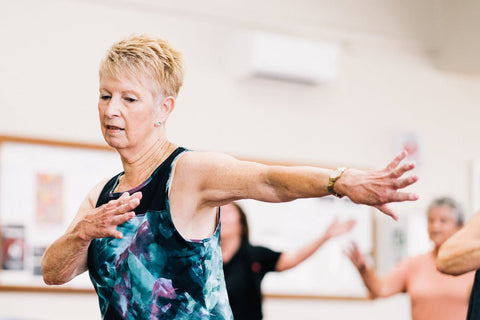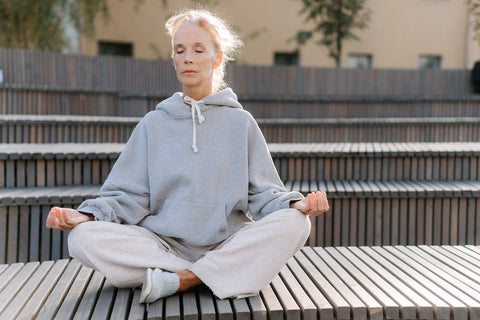When you think of fitness, it’s probably in the context of physical fitness and your body. As we all become more aware of the health risks of living a sedentary life, there's a growing emphasis on keeping our bodies in shape.
But just as we exercise our muscles, it's equally important to exercise our minds. Mental fitness is about keeping our cognitive abilities sharp, improving memory, enhancing concentration, and fostering creativity. The term “neuroplasticity” refers to the brain's ability to form and reorganize synaptic connections, especially in response to learning or during the healing process that follows an injury. It ensures that our brains remain flexible and adaptable.
By investing time in activities that stimulate the brain and boost its capabilities, we can ensure that our mental faculties remain robust at every stage of our lives. Today we want to tell you about ten of the best brain-boosting activities you can do to help shore up your mental fitness no matter your age.
Reading

According to Hobby Help, reading is the most popular pastime globally! It offers endless cognitive benefits, from expanding your vocabulary and improving comprehension to boosting your memory.
Whether you prefer fiction, non-fiction, newspapers, or scientific journals, reading regularly can reduce your risk of cognitive decline as you age. So curl up with a good book–it’s medicinal.
Solving Puzzles and Brain Teasers

Solving puzzles–such as crosswords, jigsaw puzzles, Sudoku, or logic puzzles–is a great way to challenge your brain and keep it sharp. These puzzles reinforce connections between your brain cells and can enhance your problem-solving skills, improve your short-term memory, and boost visual-spatial reasoning skills.
Successfully solving a puzzle also releases dopamine, a chemical that (amongst other functions) helps to regulate your mood.
Learning a New Language

Bilingual and multilingual people have been shown to enjoy a host of cognitive advantages. Cognitive flexibility, in particular, is enhanced and demonstrated by the ability to switch from one language to another.
Learning a language has been shown to have a positive impact on memory, creativity, empathy, and attention span. Why not fire up Duolingo or find a class at your local adult education college?
Playing Music

Music has profound effects on the brain and evidence shows that learning a musical instrument may come with a whole host of cognitive benefits. Though research is not yet conclusive, some studies have suggested that learning an instrument in childhood can have lifelong benefits for the brain.
It’s never too late to start, though. Learning to play an instrument in adulthood can help your memory, fine motor skills, and information processing, amongst others.
Physical Exercise

Yes, moving your body also benefits your brain! Aerobic activities such as walking, cycling, and swimming have been shown to increase brain volume and reduce the risk of various cognitive impairments in the long term. Exercise also enhances blood flow to the brain, delivering the vital oxygen and nutrients that it needs to function at its best.
Meditation and Mindfulness

These practices are not just about relaxation. Evidence has shown that regular meditation can physically change the structure of the brain. In particular, it can strengthen the connections between the parietal lobe and prefrontal cortex, two areas that are associated with cognitive function. This can improve memory, awareness, flexible thinking, and the ability to learn.
Playing Board Games and Strategy Games
Engaging in games that require strategy–such as chess, checkers, or modern strategy-based board games–isn’t just for fun. It can also have a profound cognitive impact. Playing these games can enhance your problem-solving skills, boost memory, and foster your strategic planning abilities.
Making Art and Getting Creative

Creativity for the joy of it is one of the most essential and wonderful parts of being human. But did you know that engaging in creative activities (such as drawing, painting, sculpting, knitting, or doing crafts) can also enhance your brain function and overall wellbeing?
Art and creativity encourage that all-important neuroplasticity and improve connections between the left and high sides of the brain. Art also improves motor skills, floods the brain with feel-good hormones such as dopamine, and may help to reduce memory loss in later life.
Enjoying Social Interactions

Maintaining and enjoying meaningful social connections is vital for cognitive health. Social activities keep feelings of loneliness and depression at bay, and research shows that they may even help to maintain thinking skills, sharpen memory, and slow down cognitive decline later on in life.
Continuous Learning

The brain thrives when it is continually challenged. This means that lifelong learning is essential. Why not learn something new by enrolling in a course, attending a workshop, or simply picking up a new hobby? Whether it's photography, computer programming, cooking, or gardening, the act of learning itself helps to keep your brain young and agile.
